
Ever wonder if you were raised in a dysfunctional family? There is no real guide to determining if a family is categorically dysfunctional, but here are some questions to ask yourself:
~If people tell you that you are like your mom or dad do you get upset and hope it is not true?
~Do you have a history of struggling with depression?
~Do people in your family always “react” to the choices of other family members? Dramatic reactions in fact?
~Have you said something hurtful (or many hurtful) things to someone in your family and wish you could take it back?
~Is your family quick to blame?
~Do you feel guilty standing up for yourself?
~Have people in your family said things to you that were just plain cruel?
~Do you feel angry often?
~Do you constantly people please?
~Are you a perfectionist?
~Do you struggle with your self-esteem?
~Do you self-medicate? Alcohol, drugs, food, sex?
~Is your family judgmental and critical of others?
~Do you relate to others with dysfunctional families? Alcoholic parents? Divorced parents?
~Is your family competitive with each other?
~Do you believe you will be (or are) a better parent than your parents?
~Is there on-going conflict in your family? With different members? Across the different generations?
~Do you struggle with anxiety?
~Is it hard to communicate in your family?
~Does it feel like there is a hierarchy within your family? Where some members are more important than other members?
~Do family members gossip about other members? Lots of third-party conversations?
~Growing up was your home life unpredictable? Did you move a lot? Switch schools frequently?
~Do you feel afraid to disagree with your family outright because risk of rejection?
~As a kid, did your parent feel more like a friend than a parent?
~Does your family hate change? Are new members welcomed in? Are adult children encouraged to be independent?
~As a kid, were your parents overly strict? Overly permissive?
~Is there a lack of diversity in your family? Are differences of opinion tolerated?
~Do you fear being abandoned?
~Did one (or both) of your parents leave you as a child? Physically or emotionally
~Is it hard for you to trust others?
These are just some possible signs of dysfunction in the family system. You may relate to some, none, or many of the aforementioned questions. Dysfunction exists on a continuum. If you relate, don’t feel too bad–most families have some level of dysfunction inherent in them– which is usually passed down from generation to generation.
Nobody comes from a perfect family.
Yet in dysfunctional families, every member has a role. The rescuer, the victim, the persecutor. For every rescuer there is a victim. For every victim there is a persecutor. So starts the triangulation of these “roles.” Dysfunctional families frequently engage in triangles.
Triangulation is when instead of members talking directly with each other about problems, they bring an outside person in to intervene in a conflicted or stressful relationship, in an attempt to ease tension and facilitate communication.
Let’s say brother A tells brother B he would like brother C to help out more with their sick father who needs a lot of day-to-day assistance at home. Dad is getting older, with more severe health issues, and can use all the support he can get from ALL his sons. When brother B goes back to brother C and gives the message, then brother C will wonder why brother A didn’t just come and ask for himself.
There is always a manipulation tactic within triangulation. Brother A might not like to ask brother C or he might know brother C will say no so he hopes brother B can be more convincing than he was when he asked the last week. Or maybe brother A realizes the only way to get brother C to do what he wants is to put familial pressure on him. When both brother A and brother B ask brother C, then brother C might feel even more pressure to comply.
Dysfunctional families triangulate to coerce other members to do things they rather not do. They also use it as a way to manage conflict. People who triangulate will call this “venting” but the healthy way to deal with conflict is to talk about it directly with the person you are having conflict with. The problem with triangles it is usually prevents, rather than invite, the resolution of conflict.
Venting and complaining about family disintegrates all three relationships within the triangle. Trust fades for someone who talks about others behind their backs. Respect also lessens for someone who listens complacently to endless fault-finding.
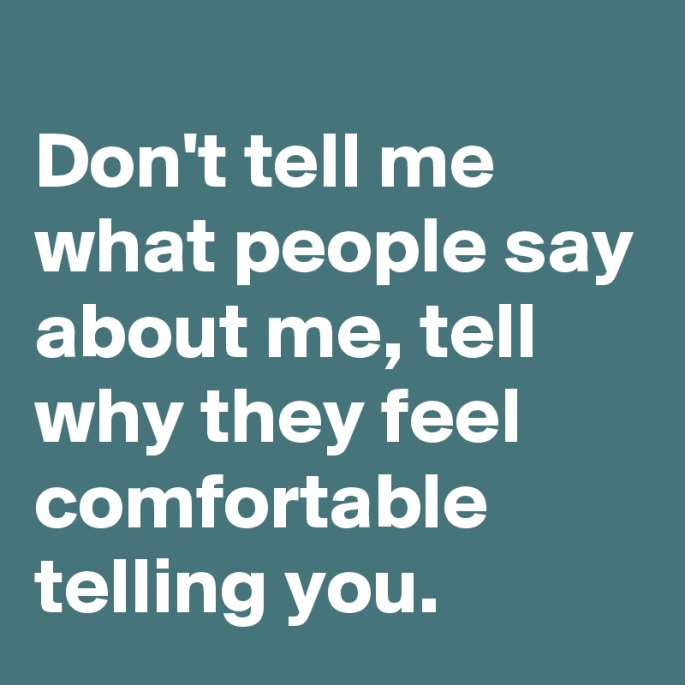
Triangulation is also extremely unhealthy when children are involved. The wife who confides in her young son about the troubles in her marriage. The father who shares his worries about finances with his tween daughter instead of speaking directly to his wife. In dysfunctional families we often see parentified children-where the child is expected to act as the parent and the parent acts like the child. The oldest child may help his siblings off to school, makes lunches, helps with homework because the parent, for whatever reason, is unavailable–whether physically or emotionally. Often a parentified child acts like parents to his OWN parents. The parentified child usually takes on the role in an attempt to keep chaos at bay and keep the family unit functioning and together. Later when the parentified child grows up they usually pick a spouse who is dependent–so they can continue to play this role of parent to their spouse. This is a clear example of boundary problems and unhealthy roles within the family system.
Another common problem in dysfunctional families is the lack of self-differentiation. Murray Bowen, who is the father of this concept, made it one of the cornerstones of family systems therapy. Self-differentiation has two tenets: that you are able to separate your feelings from your thoughts AND you are able to distinguish between your experience and the experience of those you are connected to.
Being self-differentiated is being able think for yourself and act according to your own values. When you are self-differentiated you able to disagree with the choices of a family member without trying to get them to change. The less differentiated you are the more impacted by others’ thoughts and opinions you will be. A highly differentiated person can maintain a solid sense of self even under considerable stress and anxiety (Bowen). People who are self-differentiated are not reactive and are able to make decisions independent of the input of others. At a lesser level of differentiation, a person is dependent on the input of others to make decisions and function. A person with a low-level of self-differentiation will exhibit many symptoms of stress and often act destructively under pressure. Even intelligent people can be poorly differentiated (Bowen).
When you are self-differentiated, you still care about your family and want to be connected to them. Yet you are able to limit the chaos and are not be enmeshed with your family. Enmeshment is when you are defined by the family system and look to it for your happiness rather than to the outside, larger world. When you are enmeshed, your sense of identity is wrapped up in your family. You are not able to recognize where you end and they begin. This psychological boundary does not exist in dysfunctional families.
In unhealthy family systems, it is hard to differentiate because differences are not tolerated. If you are conservative and your family is liberal you are mocked. If your family is athletic and you rather read than play a sport, you are teased. If Christmas is always at sister Susie’s and you want to have it at your house, you are met with resistance. Change is not welcome in dysfunctional families-of the individual or the system as a whole. In this type of family differences are not celebrated. Lots of shame permeates the family system.
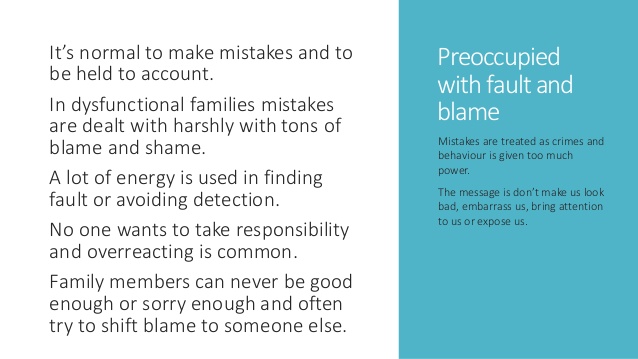
In dysfunctional families, members are made to feel guilty if they don’t visit enough, call enough, come home enough. In such families, alliances are often being formed. These alliances are ever shifting. Alliances form because members are expected to choose “sides” on every issue. In healthy families, members don’t gang up on others, pick sides, or insert themselves into conflict between other members. These are all symptoms of an unhealthy family system at play. Remaining neutral in the face of conflict is a sign of maturity and self-differentiation.
For example in enmeshed families, there tends to be a lot of drama because everyone feels entitled to opine and react on the decisions of other members. For example, son A decides he is going to move across the country for a job. In an enmeshed family, the parents may take this as a betrayal and personal affront. They may feel he is abandoning the family. Mom and Dad share their hurt and disappointment with son B instead of sharing how they feel DIRECTLY with son A.
Therefore, son B may pick a fight with son A to express his disapproval and as a way to align with the parents. Son B and the parents are forming a coalition to try to impede son A’s decision to move away. When Son A responds in a level-headed, non-reactive way to his parents and brother, calmly stating why he is choosing to move, he is met with anger and rage. His parents and brother take his calmness and composed demeanor as a sign he does not care or love them.
In unhealthy families, chronic anxiety exists. When you self-differentiate and are non-enmeshed you are much more relaxed and calm. This is viewed as a threat to other family members who are still in a state of enmeshment. In toxic, immature families becoming more mature, less reactive, and less anxious is viewed as you don’t care, you don’t love me, you are cold.
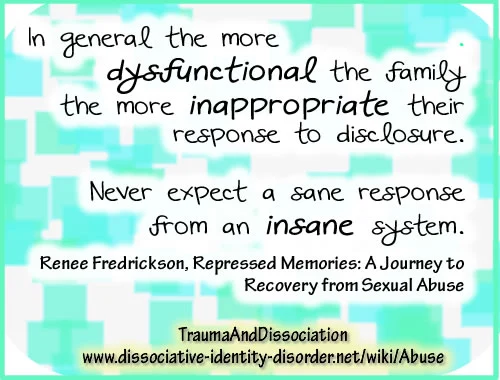
The blurring of self is normal in a dysfunctional family. If you come from a family riddled with dysfunction, the idea of personal boundaries may seem foreign to you. You are used to living in a bondary-LESS environment. A person’s willingness to accept your boundaries and limits show where their level of respect is for you AND how emotionally developed they are. In a dysfunctional family it is hard to negotiate with other members the amount of separateness and closeness you feel comfortable with because compromise is not something rigid family systems can do.
Dysfunctional families can be cult like. Oftentimes family members are not even aware of the dysfunction or in denial about it. Things are never discussed. Third party conversations run rampant. Direct communication does not exist. Expectations are never questioned. It is just the way it is.
All dysfunctional families want to maintain the status quo. This is what we always done, this is what we will always do is the family motto.
How to Begin to Differentiate from Your Family
1)Uncover your family’s rules and paradigm.
2)Ask if you believe the rules you have been following blindly since childhood. Children follow their parents unquestioningly, adults do not. It is appropriate when you are the child to look to your parents to affirm your identity. As an adult, this is unhealthy.
3)Stop needing your family for things they can’t provide. The mother you never had. The father you always wanted. It isn’t going to happen. Stop waiting on this. The sister you always wanted to love you a certain way–who doesn’t, can’t, won’t. This is a time to begin the acceptance process.
4)Reflect on what YOU believe. YOU. Stop handing your emotional power over to your family. Be who you want to be not the role your family expects you to be.
5)Understand guilt, shame, and transference of anxiety is NOT caring. It is the norm in dysfunctional, undifferentiated families. Stop holding onto these feelings-it only revictimizes you.
6)Resist the urge to rescue others.
7)Do for yourself what your family could never do for you.
8)Be mindful. This is not about blaming your family. This is about acceptance. This is you being you while being connected to your family. This is not about disconnection. This is about healthy connection.
Accept while you may have changed that we can’t change others unless they want to change. This is a time of opportunity for you. Instead of perpetuating the cycle of dysfunction, you can change the future—when it comes to breaking the cycle with your children and the next generation.
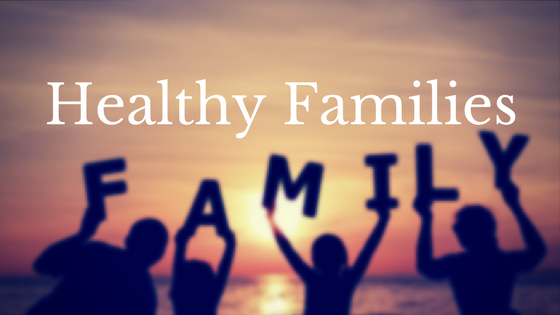
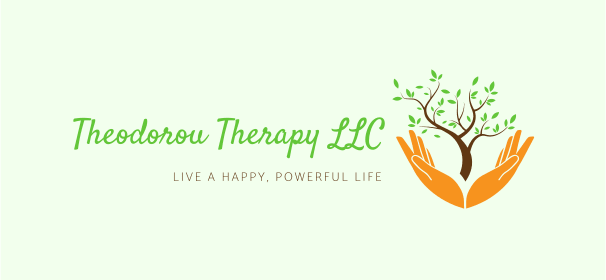
Some good points here: I will take exception to the judgmental bias in the throwaway question ‘Do you relate to others with dysfunctional families? Alcoholic parents? Divorced parents?’
Alcoholism is an illness and is dysfunctional. Divorce is a solution to what may likely be a dysfunction, or an escape from same. Therefore divorce per se should never be cited as an indication of dysfunction, definitely not on a par with alcoholism: to do so just increases the stigma of divorce, suggesting the old conservative idea of a ‘broken’ family. A divorced couple may have found the best way to right a mistake, and can then better be seen in a positive, healing light rather than as a societal problem. In a world where over 50% of marriages now lead to divorce it would be more realistic and empathic to regard a family with divorced parents as a ‘mending’ family. Maybe it is the traditional institution of marriage which is dated and unsuited to modern life: maybe those divorcees have realised this. Maybe they have a thing or two to teach us.
LikeLike